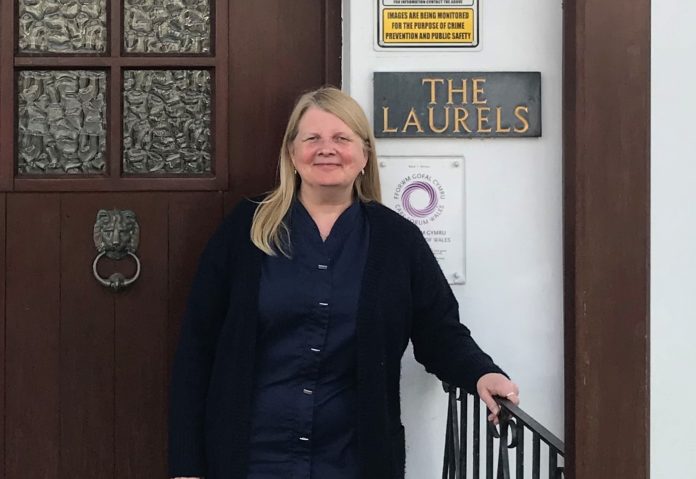A worried care home manager is calling on supermarkets to lift restrictions on bulk buying for the sector to help struggling care homes order vital food supplies during Covid-19.
Julie Ward, manager of The Laurels residential home in Aberdare, said care workers were being forced to make multiple trips to local food stores – putting themselves and residents at additional risk – because of supermarket restrictions limiting online purchases to a maximum of 80 items and no more than three of one product at a time.
This was not only increasing the risk of disease transmission for her staff who had to shop within the community but was pushing up food bills at a time when costs in the industry are soaring, placing many homes under the threat.
The home has now written to Asda appealing for flexibility on the rules for social care providers to ease some of the sector’s current problems.
It comes after Care Forum Wales (CFW), which represents more than 450 care homes, nursing homes and other health and social care providers across Wales, warned the sector was being forced to the “back of the queue” for virus testing and Personal Protective Equipment (PPE) and faced wholesale closures without adequate rescue funding to mitigate the financial pressures brought by additional staffing costs and falling occupancy rates.
“Normally, we have two Asda deliveries every week and we get as much of everything as we want,” explained Julie, who has managed The Laurels for the past 11 years.
“This usually includes 28 loaves of bread and 24 ‘six pint’ containers of milk. With the rules limiting three of every product, we’re now way short. We’ve also struggled to get delivery slots and our head cook has had to stay up until past midnight to do the order.
“On top of that, we’re limited to 80 items. Our staff are having to pick food up on their way into work which means we’re in and out of local shops. It’s an extra risk but we don’t have any choice.
“Every time our care workers go out in to the community it puts them, their families and our home at risk. We were one of the first care homes in the area to lock down because we were trying to minimise the risk to our residents. The more places you go the higher the risk of contracting something.
“They should lift the supermarket restrictions for care homes, it’s ridiculous.”
The care home wrote to Asda to explain the difficulties it had faced on the encouragement of Care Inspectorate Wales (CIW).
“We feel really disappointed to not have any acknowledgement or response at all,” said Julie, who lives in Mountain Ash.
“We’re in the middle of a crisis, we have 19 residents here who need food and they should accommodate ‘occupancy rates’ rather see us as one address. Some homes are bigger than ours but the restrictions are exactly the same, it’s ridiculous.
“Our costs have increased. Brand products are obviously more expensive and we’re no longer able to buy in bulk. On top of everything else it’s not what you want to be dealing with.”
Care homes across Wales are still struggling to secure adequate PPE while bed occupancy rates are falling with care homes fearful of accepting new patients from hospitals without sufficient virus testing in place.
Meanwhile, official death tolls have been criticised for only covering people who die in hospital rather than including care home cases, concealing the true scale of the problem.
Mario Kreft, chair of Care Forum Wales, said: “Care homes feel abandoned in the face of this dreadful pandemic and their calls for help are simply being ignored.
“Across Wales, care homes are facing a mountain of challenges from securing food supplies and managing staff absence through to increased costs and shortfalls in PPE to protect their staff – the list is endless.
“It’s time the government listened and acted. The sector is already chronically underfunded and cannot withstand further blows including falling occupancy rates without threatening the whole infrastructure of social care in Wales. These issues must be addressed with urgency and a proper funding lifeline created.
“We are also calling on Asda to follow the lead of Tesco, Iceland and Morrisons recognise the new social worker cards issued by Social Care Wales to ensure they are treated like key workers when they go shopping.
Like many care homes, The Laurels has struggled to secure adequate PPE for its 21 staff. Its usual supplier has been unable to obtain stock because it has all been destined for the NHS.
Instead, the care home has relied on donations of gloves, masks and aprons from local businesses including tattoo parlours, hairdressers and beauty salons as well as purchasing some of its own on Amazon.
“At the moment, we don’t have an outbreak of the virus,” explained Julie. I’m hoping that it stays that way.
“We are full and have a waiting list of people with whom the local authority is looking for beds. If we did have an empty bed we would fill it fairly quickly but we appreciate not every home is in this position.
“Our local authority provided us with 2,000 aprons and 2,000 gloves last week but this is our normal order, this doesn’t take account of the possibility of having any cases in the future.
“We’ve had a lot of kind people donating spare gloves, aprons and masks from tattoo parlours, hairdressers and beauty salons. We’re very grateful because it is a worry. We have a home full of staff who have to carry on as normal and they all have families at home to protect. We’re trying to keep everyone safe.
“If Covid-19 went through the home, then you’re looking at a requirement of 800 masks a week if you’re going to use them properly and change them 10 times in 24 hours. I dread to think what would happen in that situation, it would be awful.
“The Welsh Government has promised £40m of emergency funding in Wales. It’s not enough to safeguard the future of the sector and should only be seen as a first instalment. The other problem is that the money is being handed over to local councils to distribute and I doubt that all of it will reach the front line.”




























